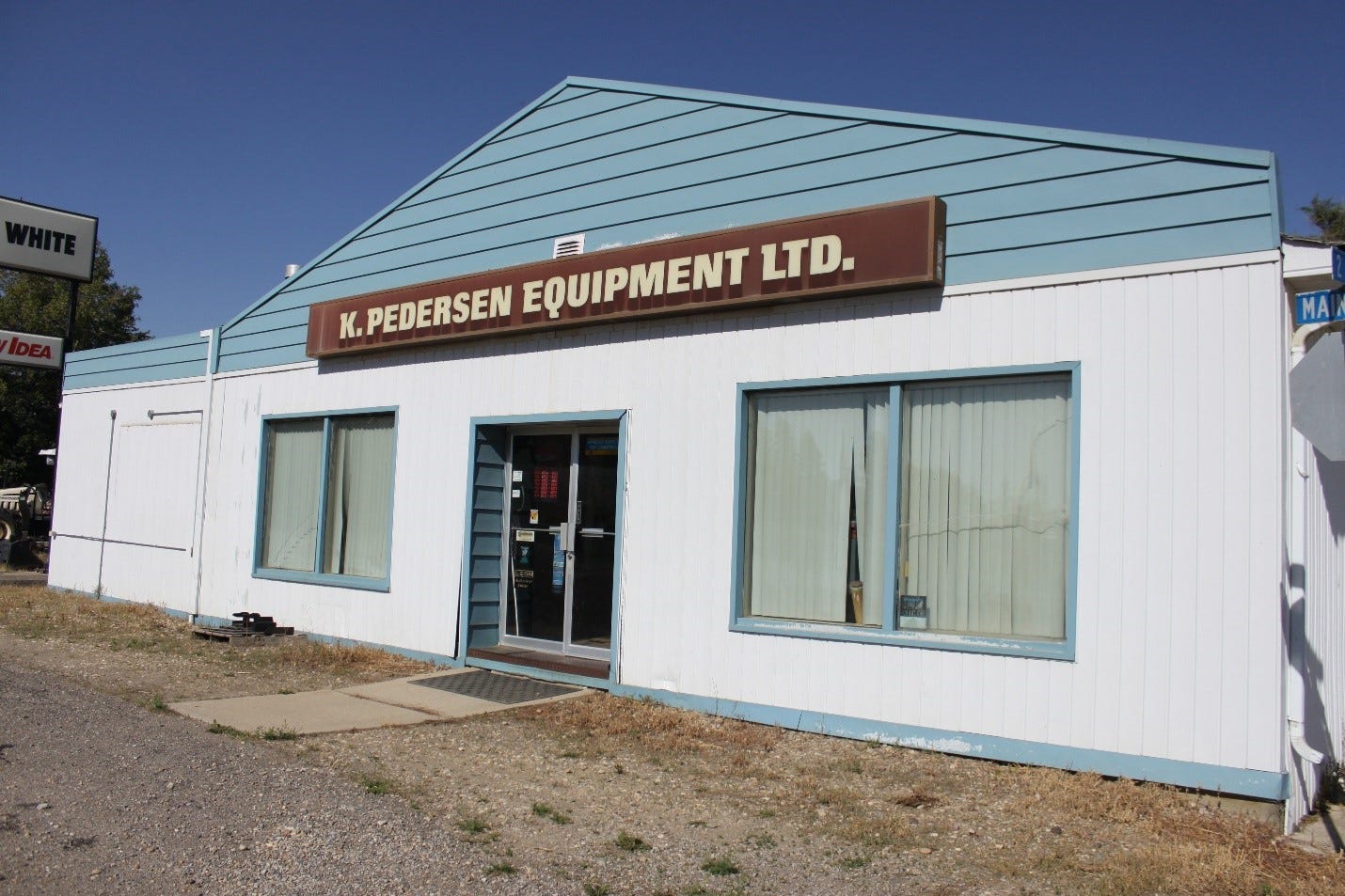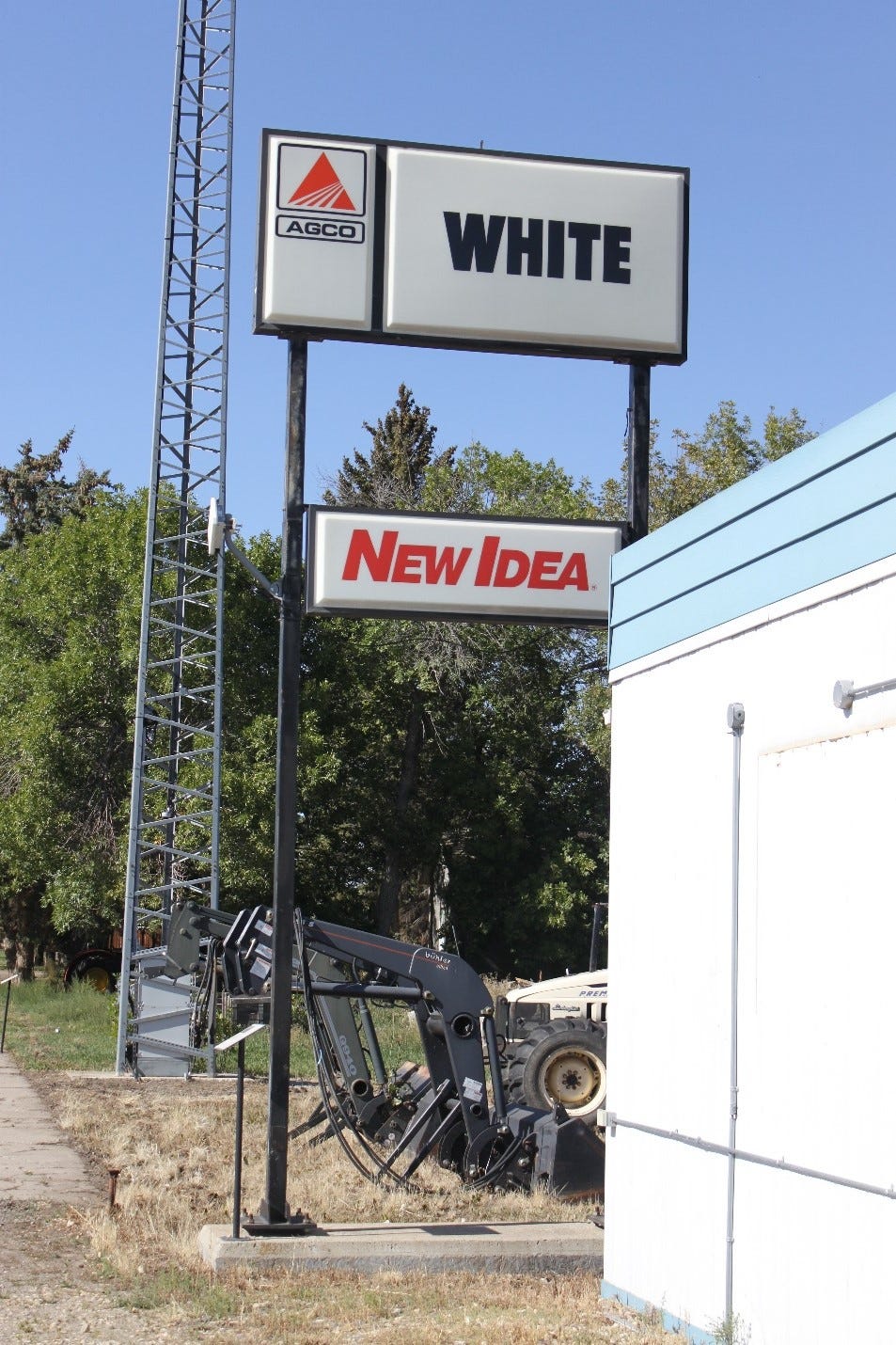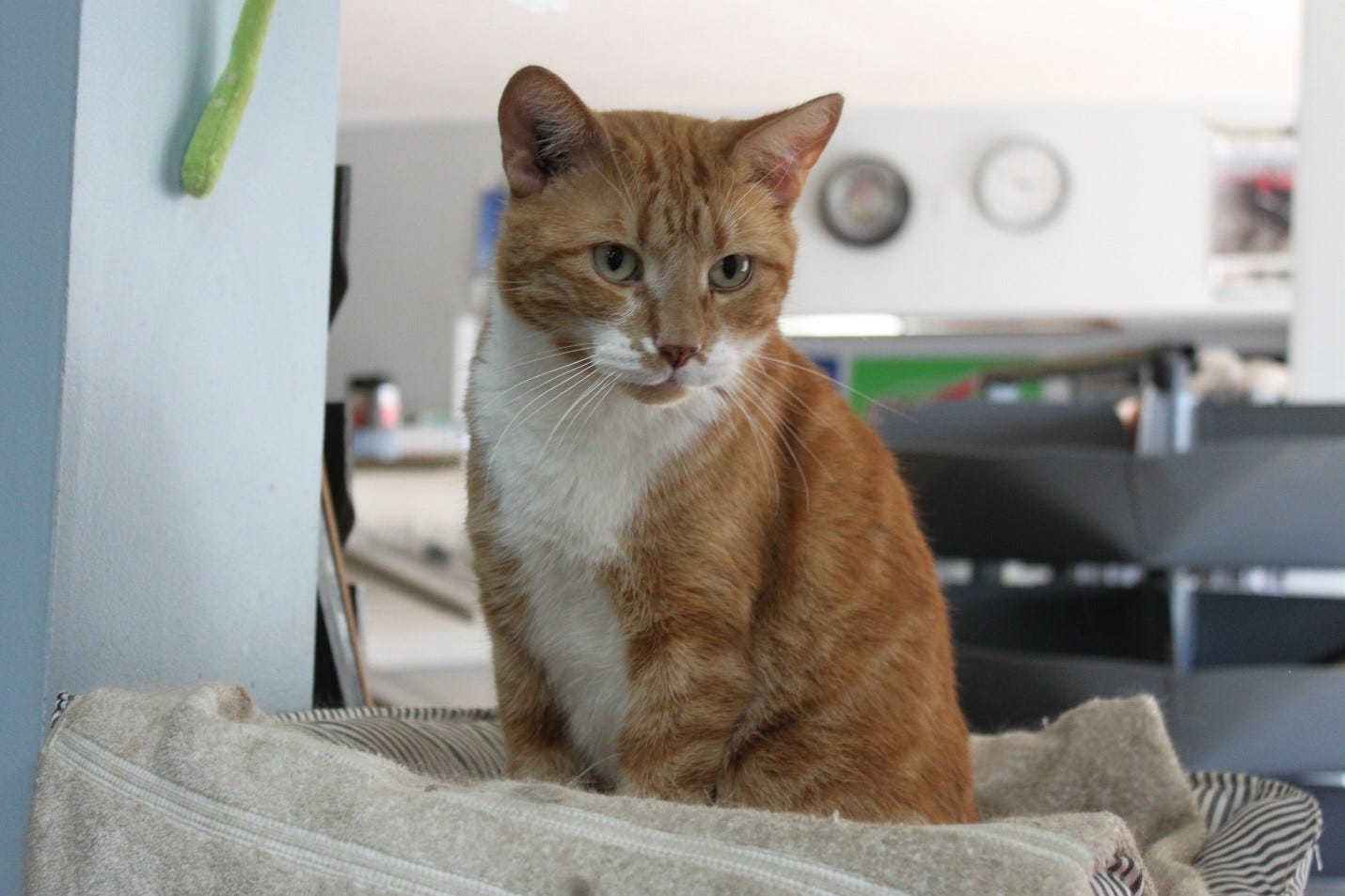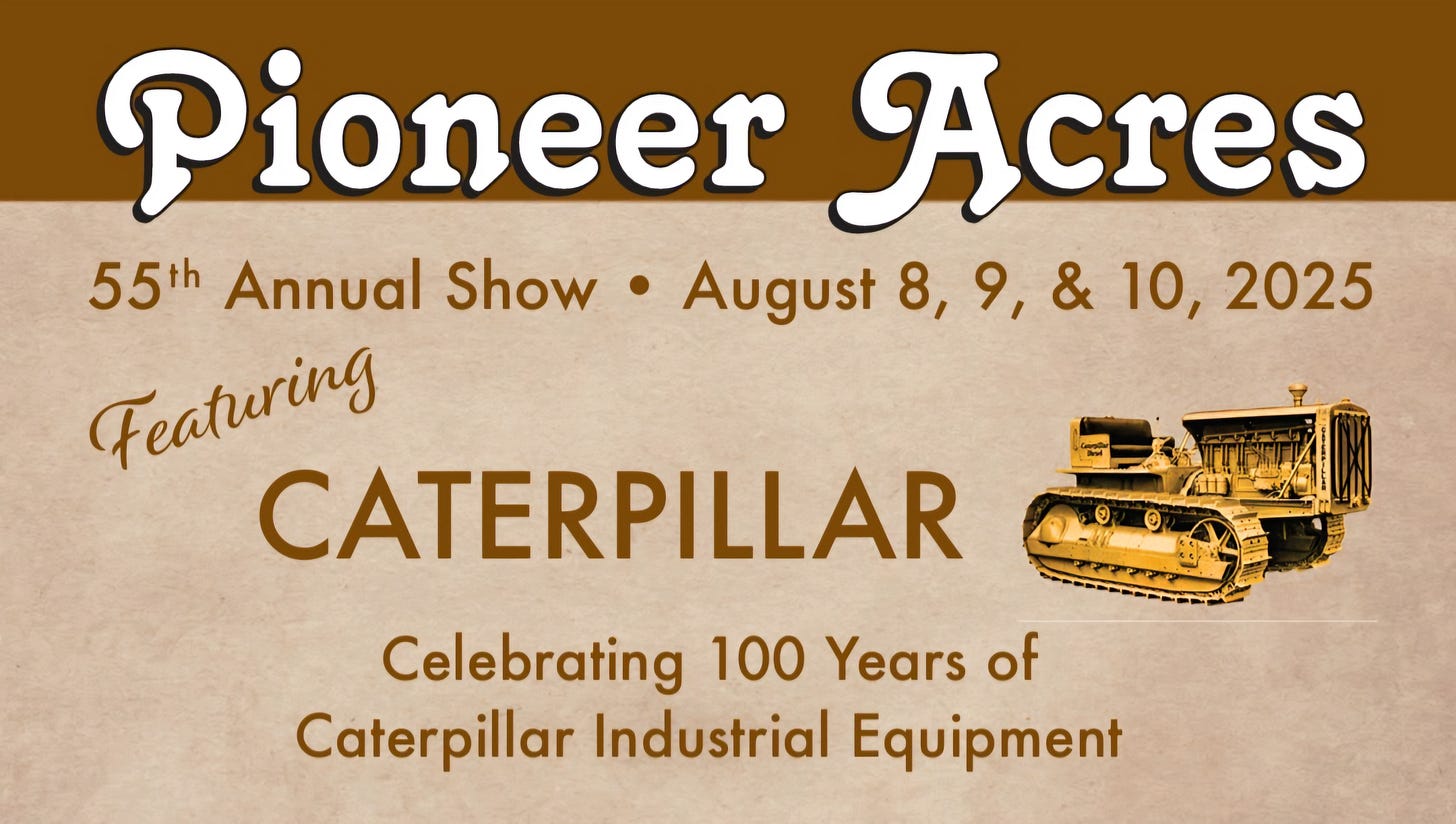Viggo Pedersen and his brother Berga started their first business in Alberta in the transportation industry. The brothers, originally from Denmark, arrived in Alberta via Chicago. American immigration to Alberta was widespread in the early part of the twentieth century, with thousands of newcomers arriving from the United States, and somewhere else first.
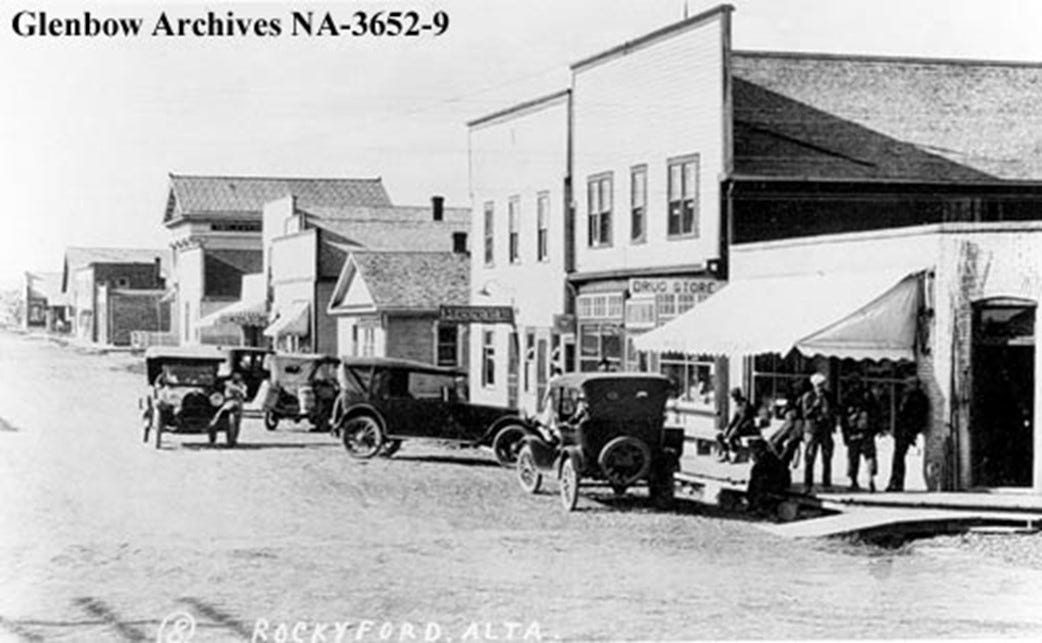
Viggo started out farming at Chancellor but relocated to Rockyford, situated in the picturesque rolling hills of the Badlands about 40 kilometres northeast of Strathmore. “Dad liked this country a lot,” Ken Pedersen recalls. Viggo farmed with horses for awhile, but he was contemplating a move to a different kind of horsepower. Horses and animals such as oxen had provided agricultural labour for centuries. However, as mechanization in the twentieth century began to significantly influence agriculture, farmers were pondering a change. Agricultural companies still offered harnesses and other equipment for horses, but they were also starting to push their new products with persuasive advertising. Horses had to be fed whether they were working or not, and valuable farmland had to be pulled out of production to feed them, the argument ran. Gas was cheap, and feed was not. Agriculture was poised at the crossroads of a significant adaptation. Viggo’s first tractor was an International Harvester.

The Pedersen brothers originally offered a transportation service. Viggo had a truck and began a hauling service. In the 1930s, many farmers were still using horse powered grain wagons, so transporting their grain to elevators during the busy harvest season was a service they were willing to pay for. In the meantime, a neighbour had started the farm equipment shop in Rockyford that is located on the site of the current K Pedersen Equipment. Viggo and his wife, Anne Lantz (originally from the Conrich area) bought out the business in 1942. In 1946, the original building burned down, and the existing shop was built on the present site to replace it. The business also sold UFA fuel.
Viggo and Anne’s son Ken, the current owner of the business, was born in 1939. By the mid 1940s, he was attending the local school. He was also taking piano lessons from a nun at the Catholic school. Music was a big part of life for the Pedersen family. Viggo was an accomplished violinist whose music was in great demand for local dances. When Ken gave up his piano lessons as a teenager, Anne told him reproachfully, “I am so sorry that you’re quitting.” Ken regrets abandoning his musical studies to this day.
Daily life at the dealership in the 1940s began as early as 5.00 a.m. during the demanding seeding and harvest seasons. Both Viggo and Anne rose early, and Anne made breakfast – Ken remembers that bacon and eggs were a big favourite. By 7.30 a.m., Pedersen Equipment was open for business, and a farmer might already be standing in front, wanting a part for a combine. The business sold new equipment and offered mechanical repairs, employing a full-time mechanic.
Viggo said, “When you sell something, you have to believe in it.” The Pedersens sold International Equipment, but they weren’t the only dealers in town – John Deere and Massey were both represented in Rockyford. Price was the biggest factor for farmers in the area. A glance into a local field could display a range of brands, all belonging to one owner: a John Deere or International tractor and implements, but almost always a Massey combine.
Ken finished high school at St. Rita’s in Rockyford. Those were difficult years for the Pedersen family because Anne spent five years bedridden with a form of cancer thought to be inoperable. A surgeon from Edmonton finally performed a cutting-edge surgery, giving Anne a new lease on life. The illness had taken out the parts person and bookkeeper, because like many other women in family businesses, Anne had been a not so silent partner in keeping the operations running.
In 1962, Ken married his wife June, and they have been together ever since – sixty-two years and counting. When Viggo passed away in 1976, Ken decided to purchase the business from his father’s estate and make it his full-time career. The dealership now included International trucks. “I guess I was the happiest guy on the block,” Ken notes.
The 1980s brought another time of evolution for food production. The new generation of farmers were suspending traditional techniques of weed control like summer fallow. Summer fallow worked the soil until it was bare and black, destroying weeds at the roots. While it was a conventional and organic method, exposing bare, black soil to the Alberta sun and wind triggered dust storms. By the 1980s, farmers wanted equipment that seeded right into stubble, a “zero till method” that had International coming out with new product lines to fill the demand.
The 1990s were years of drought. Or, of seasons so wet that the combines couldn’t get into the field. At the time of this writing in September 2024, autumn in southern Alberta has recorded temperatures greater than 30 °C. Weather, from time immemorial, is a factor. Ken also mentions the current political situation that has seen Canadian canola farmers trapped in the middle of a trade war between Canada, the United States, and China. When drought, politics or other circumstances beyond a farmer’s control threatens their livelihood, the impact on farm equipment companies is immediate. These businesses are such intimate partners that what impacts one has an immediate influence on the other. However, the context that Ken has after so many years in the business is that the ups and downs are not new or exceptional.
Although he gave up on his piano lessons years ago, music continues to be a cherished part of Ken’s life, and he highly recommends the violinist Andre Roux, whose music blends waltzes, and other dances with a classical element. (You can find Roux’s music on platforms like Apple Music, Spotify and YouTube).
Ken is a confirmed cat person and finds caring for the approximately twelve cats who live either at home or at work very rewarding. The animals were abandoned by previous owners, and recently Ken teamed up with the Alberta Animal Rescue Crew Society (AARCS) to have the kitties trapped. AARCS spayed, neutered and vaccinated the cats and found homes for some of the younger kittens, but the rest of the cats were returned to Ken’s capable hands. He and his friend Felix, the orange and white senior cat asleep in a cozy bed on the counter, took up with each other fifteen years ago when Ken made a service call and came home with a cat. They’ve been together ever since.
After fifty-two years, Ken intended to sell what he could in 2023 and give up the business. “That isn’t working out too well at all.” As of 2024, both he and June have had health problems and June is currently living at a care facility in Calgary. “I’m the only cook in the house,” Ken reports, adding that his specialty is frozen dinners.
For now, harvest of 2024 is in full swing in Rockyford, Alberta, and Ken and Felix are still in business.
Thank you to Ken Pedersen for the history of his family’s dealership and to Shelly McElroy for preparing this story. Thanks also to the Historical Society of Alberta for their funding support.




